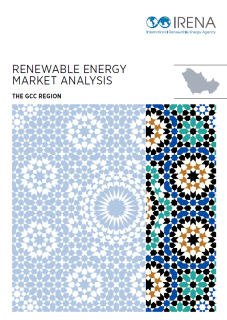
The six-member Gulf Cooperation Council (GCC) holds almost a third of the world’s proven crude-oil reserves and about a fifth of natural gas reserves. Exports of these fossil fuels have underpinned impressive economic growth, which has brought widespread prosperity and rapid development in the region. However, industrialisation, population growth and increasing water desalination have led to high energy demand growth, affecting the ability of some GCC countries to maintain export levels over the long term. The resulting market dynamics have compelled governments to embark on a diversification strategy. The addition of other sources, including renewables, into the region’s energy mix presents ample opportunities, both through freeing up domestic energy production for export and reducing carbon-dioxide (CO2) emissions. Other socio-economic benefits include job creation and local economic diversification.
The report Renewable Energy Market Analysis: The GCC Region looks at the opportunities and barriers for renewable energy deployment in GCC economies and offers recommendations for greater integration of renewables into the regional energy mix. This analysis from the International Renewable Energy Agency (IRENA) highlights the best practices in policy-making, project development and financing that have begun paving the way for more sustainable energy systems. The report also examines the potential for renewables-based desalination to address the need for sustainable water supply in the arid GCC region.
